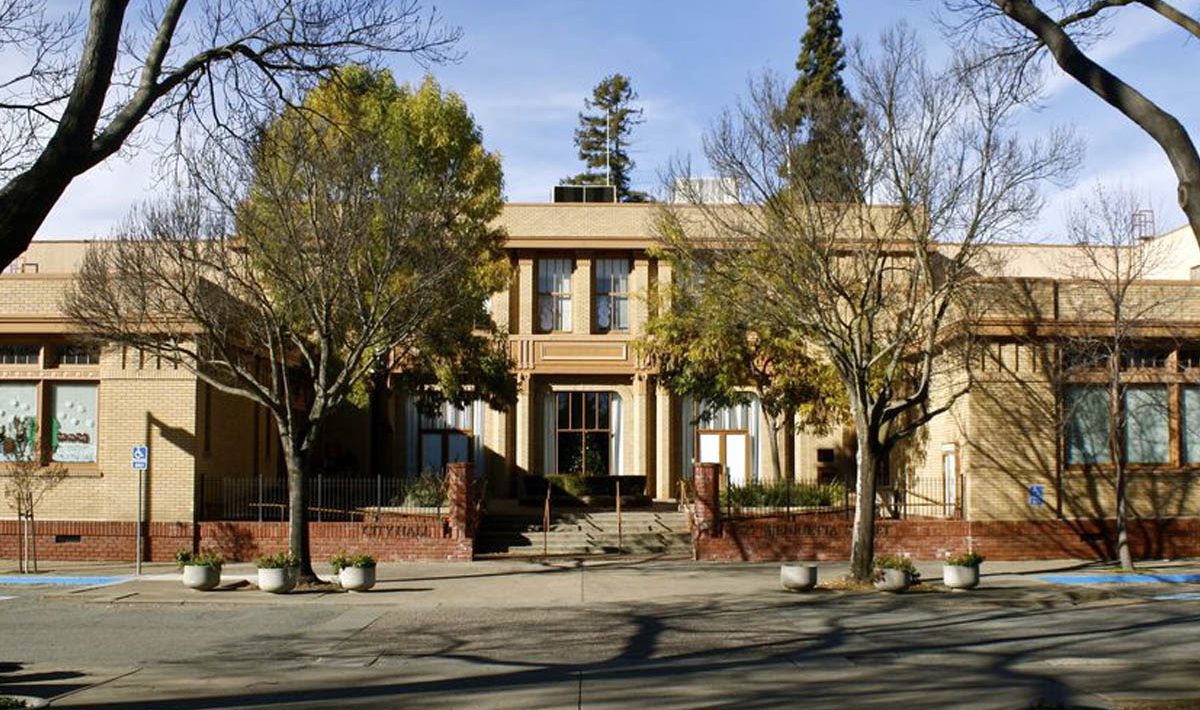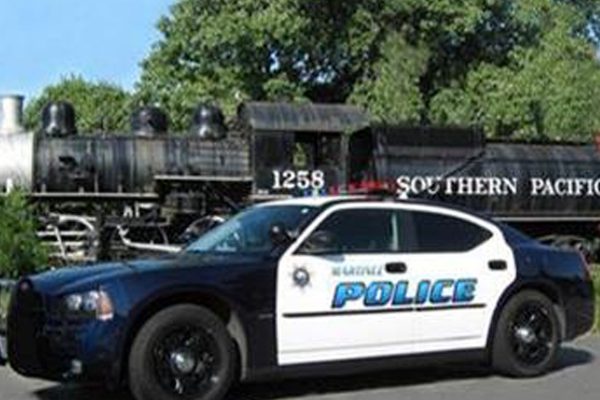Martinez City Council agreed with speakers’ recommendation Wednesday to establish a task force to examine its government operations for any racism or homophobic bias.
The Council also upheld the appeal of a cannabis manufacturing company that claimed its application should have been sent to that body for consideration.
City Manager Eric Figueroa, building on public commentary at past meetings, offered two anti-discrimination alternatives to the Council Wednesday.
One would be a mayor and Council appointed task force made up of perhaps nine residents tasked with analyzing the city’s policies, practices and programs to root out any prejudice against any race or sexual orientation, especially unconscious bias. The city would allocate up to $10,000 for a facilitator to guide the task force.
But in the past several weeks, the Council and its staff have heard pubic complaints about situations outside the city government that have made black, brown, gay, lesbian and transgender people uncomfortable or fearful while in Martinez.
Figueroa developed an alternative to the task force should the Council want to expand the conversation beyond governmental practices. In this more expansive approach, the city would underwrite the cost up to $10,000 for a facilitator at up to three town hall meetings, where residents could describe their experiences and remedies could be proposed.
The town halls, much like the city’s town halls on situations, concerns and services related to Martinez’s homeless population, could encourage a coalition of interested residents, religious organizations, nonprofit groups and other interested associations as well as Contra Costa County departments to collaborate on ways to address racism and discrimination throughout the community.
Several speakers, even those who said the problem goes beyond city operations, said victimized people would be worried about sharing their testimonies in a public town hall.
They advocated the Council pursue the task force’s formation, although they continued to question whether an all-white group of elected officials understood racism well enough to select the most appropriate panelists. Legally, the Martinez mayor makes appointments subject to confirmation by the Council, Figueroa said.
And the task force’s meetings must be open to the public, Councilmember Lara DeLaney said. Under California’s local government public access law, the Brown Act, the task force must comply with the same regulations followed by the city’s other advisory panels and the Council itself.
To address worries that the elected Council only has white members, Figueroa said he would select a mixed panel that would assess task force applicants and make recommendations to Mayor Rob Schroder and the rest of the Council.
DeLaney said the Council could remove itself further from the selection process by using a lottery to make the final appointments, although some members of the Council worried that even a lottery system could lead to a panel makeup that skewed to a single demographic.
The panel will select its own name, although for the purposes of seeking applicants, the Council had to give it a temporary moniker.
While Vice Mayor Mark Ross suggested that the temporary name reflect the focus would be on making the city anti-racist and anti-homophobic, Schroder said he’s been asked to include anti-Semitism and other types of discrimination.
DeLaney suggested the name blend the city’s stated stands against racism with its encouragement of equality and inclusiveness. She also expressed hope the task force would take time to be host of a public town hall, to give additional individuals a chance to weigh in on discrimination experiences.
Multiple venues would be used to request applications from the public, Figueroa promised, and asked Councilmembers to send him any suggested revisions to the application forms so they could start being distributed next week.
Once appointed, the task force will select its own name and meeting dates. It also will select its facilitator from those suggested by city staff. Its discoveries as it eyes city policies and practices will be compiled in reports, which along with recommendations will be sent to the Council for consideration.
In other matters, the Council upheld an appeal from Opposite Coast, which wants to put its cannabis manufacturing business in the same building, 4808 Sunset Drive, where Yerba Buena Logistic Services (YBL) will operate and Velvet has opened various cannabis operations.
The Proposal Review Committee, which examines conditional certificate applications for the city’s limited number of cannabis licenses and forwards to the Council those who receive qualifying scores, had expected to hear a presentation of a firm that wanted to take cannabis resin extracts and infuse products for future sales.
But during the interview, the committee learned that the principals had changed the manufacturing focus to labeling products for other brands.
Some members of the committee had concerns about the company’s expertise. The original scores were miscalculated, said Christina Ratcliffe, director of the city’s Community and Economic Development Department.
Although the recalculations improved the company’s score, it fell fractions below the necessary 80 percent approval for the application to continue to the Council.
But the company was the only responder to the city’s request for proposals for its sole manufacturing conditional certificate, and changes in the industry, from reduced retail space to a decline in investments during the COVID-19 pandemic, forced Opposite Coast to revise its business plan.
Staff argued that the revised proposal was not as thorough as the original application, but Josh Glaser, who with Farid Harrison and Matt Morea, are Opposite Coast principals, said the shift to labeling was necessary in the economic climate.
Morea disagreed with the committee’s concerns that his company has insufficient expertise. It has ties to Velvet, the retailer that originally applied under the name Firefly for its own dispensary certificate.
The company produces top-ranked and well-selling products, making among the best in the legal sales of the product, he said, and had $75 million in sales in 2018.
The Council agreed with the appellant, noting that it was the sole responder and that it missed the 80 percent mark by a fraction of a point. But that does not assure the company of a conditional certificate. It will return in the future to make a full presentation to the Council, which will consider the certificate award at that time.
In a separate matter, the Council memorialized the award of two conditional certificates to (YBL) for distribution and non-storefront retail cannabis businesses, also at 4808 Sunrise Drive.
The Council approved the city’s response to a Contra Costa County Grand Jury report on police staffing, even strengthening the reply that the city would not implement recommendations to seek certain grants to add to staffing, including above the department’s staffing needs.
Martinez Police Chief Manjit Sappal said the grants could not be used to pay for unfunded vacancies, and when grand money expires, those hired likely would lose employment.
Some members of the public urged the Council to take the grand jury to task for telling county law enforcement agencies ramp up their hiring instead of “reimagining organizations,” and others called for the item to be put to the public to contribute to the city’s response to the grand jury recommendations.
But the city has limited time to respond, and can only answer that it agrees, disagrees or may consider any criticism, and either agrees or disagrees with implementing recommendations, Figueroa said.
It approved the contract extension with the Martinez Police Officers Association to Dec. 31, and continues temporary waivers of late payment penalties and suspensions of disconnections for water and sewer utilities because of the pandemic.
The Council approved consultants for the $1.25 million paving project on Court and Pine streets from Marina Vista Avenue to Susana Street and Berrellesa Street from Marina Vista Avenue to Jones Street. Work will begin in late August and last about four months.
It amended a landscape maintenance contract with P.J. McNamara and a Golden Hills Park tennis court resurfacing contract with AllSport America. It also approved a program supplement for the Arnold Drive Sidewalk Gap Closure Project.
The Council does not anticipate meeting in August, and its September meetings, like others since the pandemic shelter at home regulations were imposed, likely will be conducted through the Zoom online platform.






2 Replies to “Council moves forward on anti-discrimination task force, upholds cannabis manufacturer appeal”